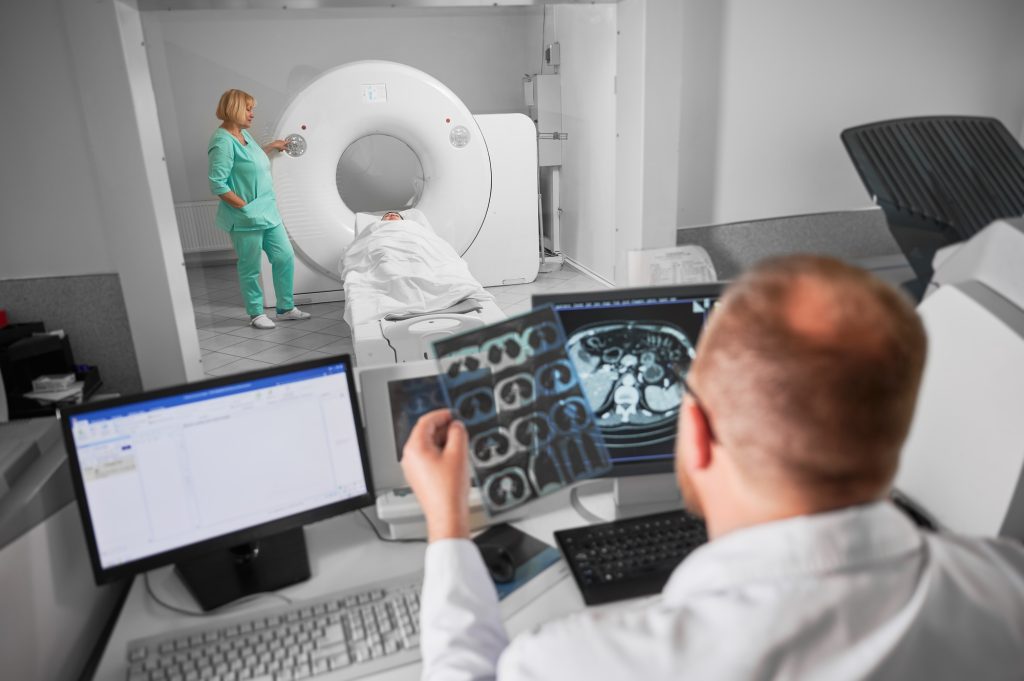Symptoms of Colon Polyps
In many cases, colon polyps do not cause symptoms and are only detected through routine medical exams. However, when symptoms do occur, they may include:
- Rectal bleeding, visible in the stool or on toilet paper.
- Changes in bowel habits, such as prolonged constipation or diarrhea.
- Abdominal pain or discomfort, especially if the polyp is large.
- Thinner-than-normal stools, which may indicate a partial obstruction.
- Fatigue and anemia, due to hidden blood loss in the stool.
- A sensation of incomplete evacuation, when polyps affect intestinal motility.
- Increased mucus in the stool, a less common but possible symptom in some cases.
If you experience any of these symptoms, it is essential to get a medical evaluation to rule out more serious risks.
Diagnosis of Colon Polyps
At Centro Pad, we use the most advanced techniques to accurately and safely detect colon polyps. The main tests include:
- Colonoscopy, which allows direct visualization of the colon and removal of polyps during the procedure.
- Biopsy, where polyp tissue is analyzed to determine its nature and malignancy risk.
- Fecal occult blood test, to detect small amounts of blood not visible to the naked eye.
- Computed tomography (CT colonography), a less invasive method to identify large polyps.
Advanced Treatments for Colon Polyps in Moncloa-Aravaca
The treatment will depend on the type and size of the polyp, as well as the risk of malignancy. At Centro Pad, we offer innovative solutions for their removal and follow-up.
Robotic Surgery with the Da Vinci System
Robotic surgery is one of the most advanced options for the removal of complex polyps. Its main benefits include:
- Less postoperative pain and faster recovery.
- Lower risk of complications, such as perforations or excessive bleeding.
- Minimal scarring and better cosmetic results.
- Greater preservation of intestinal function, preventing alterations in bowel transit.

Laparoscopic Surgery for Polyp Resection
In cases where colonoscopy is not sufficient, laparoscopic surgery is an excellent alternative. Its benefits include:
- Minimally invasive procedure, with small incisions.
- Shorter hospital stay and quick return to daily routine.
- Lower risks compared to open surgery.
- Shorter recovery time and less postoperative discomfort.
TAMIS (Transanal Minimally Invasive Surgery)
TAMIS is an advanced, minimally invasive technique performed from within the rectal lumen, used for resecting rectal lesions, including adenomas and some early-stage cancers. Its main advantages include:
- Superior surgical precision, allowing precise tumor removal without abdominal surgery.
- Less postoperative pain and faster recovery compared to conventional procedures.
- Reduced risk of complications, such as infections and bleeding.
- Preservation of sphincter function, avoiding the need for colostomy in selected cases.
- No abdominal incisions, improving cosmetic outcomes and reducing hospital stay.
Other Minimally Invasive Treatments
Endoscopic removal, when polyps are small and accessible via colonoscopy.



